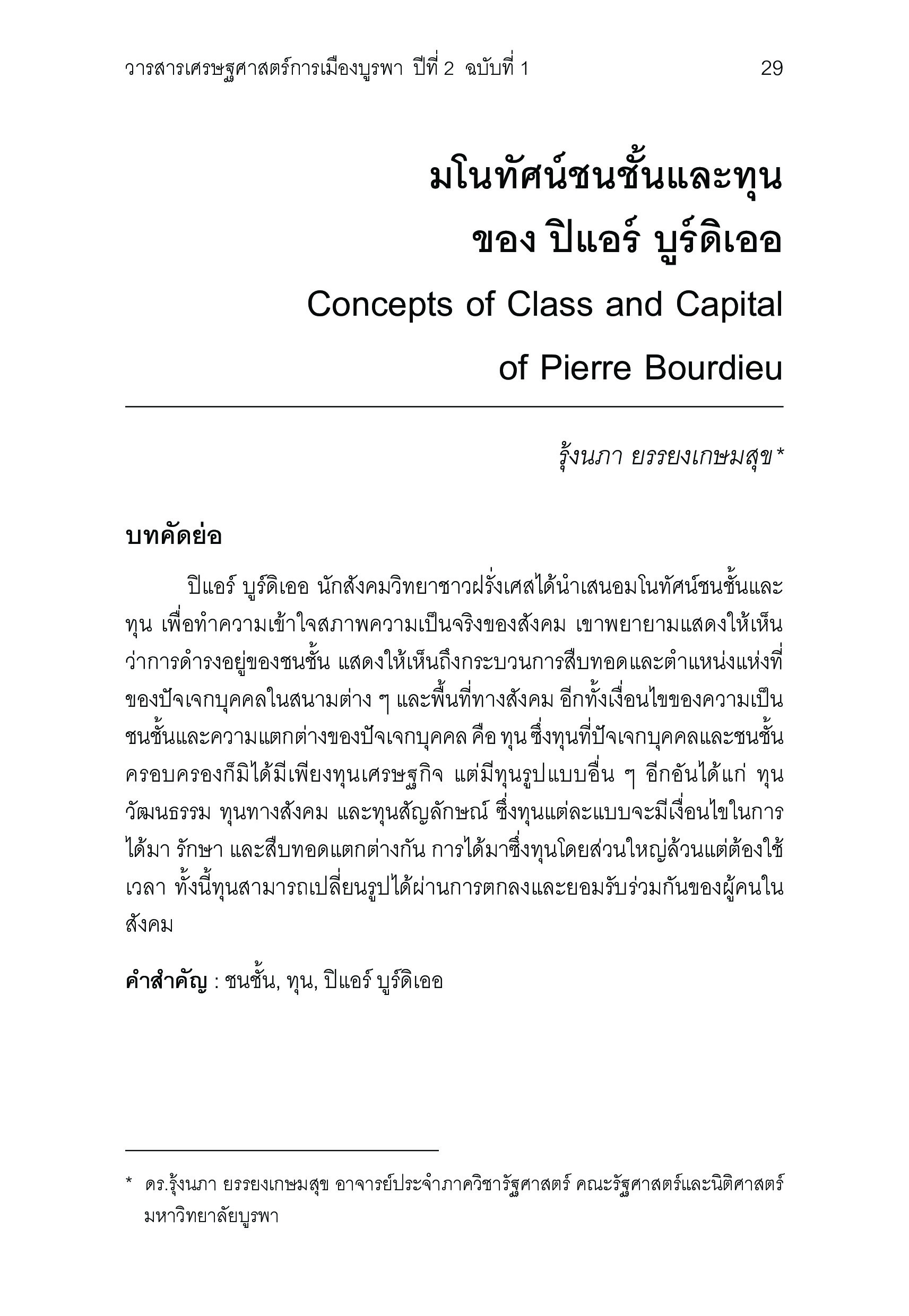Concepts of Class and Capital of Pierre Bourdieu
Keywords:
Class, Capital, Pierre BourdieuAbstract
Pierre Bourdieu, French sociologist, presented class and capital as concepts to understand the reality of society. He tried to illustrate that the existence of class reflects the inheritance process and positions of individual both in fields and social space. Besides the condition of class and differentiate of individual is capital, capital which individual possesses is not only economic capital but also cultural capital, social capital, and symbolic capital. Each form of capitals has their own condition of acquisition, maintenance, and transmission. Mostly, individual cannot acquire capital within a day because it takes much time to accumulate and get the acknowledgement from their class and society. Capital can be transformed through the mutual agreement and acceptance of the people in society.
References
Bourdieu, P., & Wacquant, L. (1992). An Invitation to Reflexive Sociology. Chicago: The University of Chicago Press.
Bourdieu, P. (1989). Distinction: A Social Critique of the Judgement of Taste. London: Routledge.
_______. (1993). Sociology in Question. London: SAGE.
_______. (1997) ‘The Forms of Capital’ in Halsey, A.H., H. Lauder, P. Brown and A.S. Wells (eds). Education: Culture, Economy, Society. Oxford: Oxford University Press.
_______. (1998). Practical Reason: On the Theory of Action. Cambridge. U.K.: Polity Press.
_______. (2002). Distinction : A Social Critique of the Judgment of Taste. Translated by Richard Nice. Cambridge: Harvard University Press.
Robertson, D. (2002). A Dictionary of Modern Politics. London: Europa Publications.
Yanyongkasemsuk, R. (2007). Capital Characteristics of Thai Elites in the Bangkok Period (1782-2007). Asian Review, 20, pp. 165-195.






